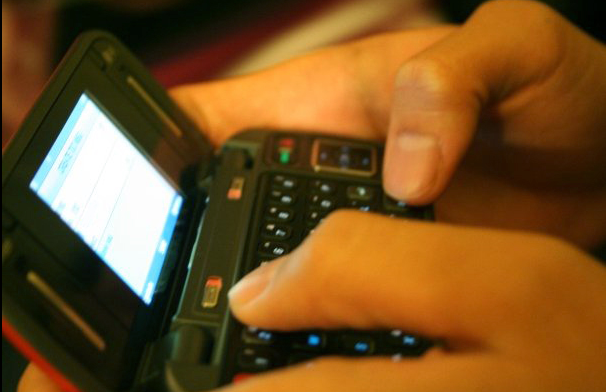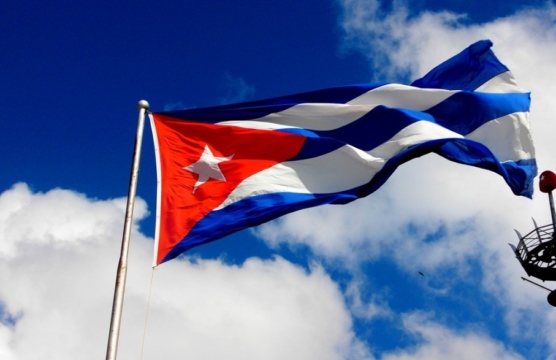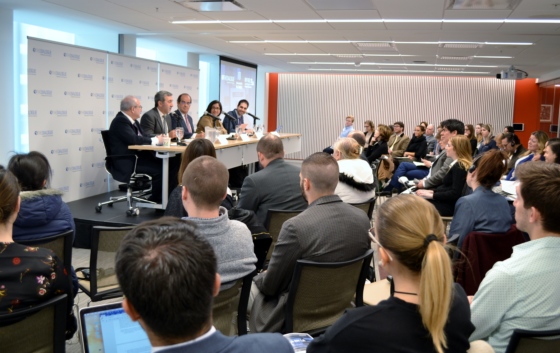US Seeking Stronger Connections in Region Through Technology
The US State Department is fostering new methods of engaging directly with Latin American citizens.
A Daily Publication of The Dialogue
Q: The U.S. Agency for International Development created and operated "ZunZuneo," a communications network similar to Twitter that had the aim of destabilizing the Cuban government, the Associated Press reported on April 3. USAID responded by saying the purpose of the program was "to create a platform for Cubans to speak freely among themselves, period," while the White House denied that it was a covert program. How much of an impact will the revelations have on U.S.-Cuban relations? What does the controversy mean for bilateral issues such as the imprisonment in Cuba of former U.S. government contractor Alan Gross? Are social media programs such as these a good use of USAID funding and the U.S. government's resources?
A: Roger Noriega, managing director of Vision Americas LLC, visiting fellow at the American Enterprise Institute and former U.S. assistant secretary of state for Western Hemisphere affairs: "Most conversations about U.S. policy toward Cuba involve Americans of good will on all sides of the issue forming a circular firing squad and criticizing our different approaches. But, we should instead bear in mind the remarkable bipartisan commitment to help the Cuban people survive another day in a Stalinist dictatorship. If you see Cuba as a spring break destination as Sen. Jeff Flake recently described it, you are bound to question programs aimed at changing its reality. If you think of 11 million people whose past, present and future have been hijacked by a gang of cruel old men, then you are bound to forgive mistakes made with the intent of changing that reality. Perhaps we Americans are 'obsessed' with Cuba because so many other regional politicians do not appear to care very much at all. I doubt that Barbadians or Chileans care more about the comfort of Cuba's current leaders than for the inhabitants of the island who are tormented by their government, but that is the effect of their policies. We need help on Cuba, and mobilizing that help requires us to speak clearly about Cuba's reality. In 30 years, I do not recall a single serious alternative offered by a Latin American or Caribbean friend about how to help their Cuban brothers recover their universally recognized rights--other than the United States lifting its embargo. Nor do I recall many Chilean, Haitian, Nicaraguan, Panamanian, Honduran, Venezuelan or other friends asking the international community to do less to help them confront an undemocratic regime. So, yes, pro-freedom programs--well-conceived and executed--are not only worthwhile, but a point of pride. I dare say they are at least as important as buying energy-efficient light bulbs for a South American opera house--something that really happened. As for Alan Gross, he deserves much more support. I would send a Cuban 'diplomat'/intelligence officer home every day until Mr. Gross is freed. And I then would begin to roll back the cash-generating travel that has benefited his captors. Despots do not respect soft power. They respect power."
A: Josefina Vidal Ferreiro, general director of the United States Division in Cuba's Ministry of Foreign Affairs: "The information contained in the article published by the U.S. news agency AP confirms the repeated denunciations made by the government of Cuba. It is once again demonstrated that the government of the United States has not given up on its subversive plans against Cuba, which seek to create destabilizing situations in the country in order to provoke changes in our political order, to which the government of the United States continues to dedicate budgets of millions of dollars every year. The government of the United States must respect international law and the purposes and principles of the Charter of the United Nations and it must, therefore, cease its illegal and covert actions against Cuba, which are rejected by the Cuban people and the international public opinion. We have read with concern the press communiqué issued the morning of April 8 in Washington stating that 'Alan Gross, the USAID subcontractor imprisoned in Cuba for the last four years and four months, launched a hunger strike last week.' The Cuban government reiterates its willingness to find, together with the U.S. government, a solution to the case of Mr. Gross that is acceptable for both parties, taking into account Cuba's humanitarian concerns with regard to three of the five Cubans who have remained unjustly imprisoned in the United States for more than 15 years. As is well known, Mr. Gross has been accorded decent and appropriate treatment. Since his detention, he has remained interned in a hospital, not because his health condition required so, but because there he is guaranteed specialized assistance by a highly qualified medical staff. He has been visited by his wife and his lawyer, with whom he also maintains regular communications by phone and e-mail, as he does with other relatives and friends. He is visited by U.S. diplomatic officials on a monthly basis and also by political and religious personalities. Mr. Gross was detained, tried and convicted for violating the Cuban laws while he was implementing a subversive program financed by the U.S. government which involved the establishment of illegal and covert communication systems with the use of non-commercial technology."
A: Peter Hakim, member of the Advisor board and president emeritus of the Inter-American Dialogue: "USAID director Rajiv Shah and other supporters might be telling the truth about ZunZuneo. The program was probably legal under U.S. law and similar to pro-democracy initiatives elsewhere. It surely was intended to expand the freedom of Cuban citizens, with regime change possibly only the wishful thinking of a zealous official. With a stretch, the program just might be called discreet, not secret. But, true or not, many crucial questions were left unanswered. For one: Was the ZZ program compatible with other U.S. policies and programs? We know that senior U.S. diplomats are negotiating diligently with Cuban counterparts--over immigration, postal service, coast guards coordination and other serious issues. The United States also gives considerable importance to getting imprisoned USAID contractor Alan Gross home. How has ZZ's exposure affected the likely success of these other priorities? How could US officials have believed that they could keep ZZ secret from Cuba's skilled security and intelligence forces? Second, why is the United States so alone in pursuing its Cuba policies? Are there no countries in Europe or Latin America that care about freedom and political rights in Cuba? Do ZZ-style programs make it more or less likely that Washington will remain isolated? Does the United States care whether it has any allies on Cuba? Third, do U.S. policies in Cuba make it easier or harder for the United States (and for USAID) to support democracy and human rights elsewhere in Latin America (for example, in Venezuela) or anywhere? Does the public disclosure of ZZ and other 'discreet' initiatives affect Washington's (and USAID's) credibility in Brazil and Mexico--or China and Germany? Finally, will the United States continue to sponsor ZZ-style programs? What has the United States learned after 55 years of unproductive policies that have left Cuba repressive and backward?"
A: Matthew Aho, consultant in the corporate practice group of Akerman Senterfitt in New York: "The U.S. Agency for International Development's 'cockamamie' (to borrow Vermont Senator Patrick Leahy's descriptor) scheme to foment unrest through semi-covert bootleg Twitter site ZunZuneo is only the latest embarrassment stemming from Congress' $15-30 million annual allocation for democracy promotion in Cuba. The program's failure lies not in the Obama administration's mission to increase the flow of information to the Cuban people, but rather in its methods and cost: at its zenith, the site reportedly attracted some 40,000 users, most of whom only ever received sports scores and entertainment updates. By the time it was terminated in 2012, the cost to American taxpayers was more than $2 million--or $50 per user--and the most significant deliverable was another public relations coup for the Castro government. In terms of U.S.-Cuba relations, ZunZuneo's outing will only sour ongoing bilateral talks. It will also confirm the paranoid suspicions of Cuban government hardliners, thereby emboldening them to oppose unilateral steps toward rapprochement, such as the release on humanitarian grounds of Alan Gross. Although most moderates have always understood that USAID-led democracy promotion programs in Cuba will never bear fruit, they are a thorn in the side of bilateral relations and a reliable tool for hardliners in both Washington and Havana who prefer the status quo. To break through this logjam, the White House should take two steps: 1) order the State Department to review the programs with an eye toward supporting the Cuban people and; 2) open the information floodgates by authorizing companies like Google, Twitter, Facebook and others to do transparently what USAID never could: create a platform for Cubans to speak freely among themselves, period."
Editor's note: The comment above from Josefina Vidal Ferreiro was submitted to Advisor staff from the Cuban Interests Section in Washington in response to our query in the form of press releases that have been circulated publicly on the topic.
The US State Department is fostering new methods of engaging directly with Latin American citizens.
Fidel Castro, or at least the message released in his name, tepidly endorsed the decision to normalize relations between the US and Cuba.
On November 15, the Inter-American Dialogue hosted the event “Corruption, Internet Freedom, and Online Privacy in Latin America,” bringing together panelists to discuss a report recently published by the Inter-American Dialogue about freedom of expression and the concept of the “Right to be Forgotten.” The event’s panelists included Catalina Botero, Edison Lanza, José Luis Piñar, Romina Mella, and Michael Camilleri. The panel explored the concept of the “Right to be Forgotten” in the context of Latin America, considering the tension between privacy and transparency, and how European privacy standards can be adapted for the Americas.
 Alton / CC BY 3.0
Alton / CC BY 3.0

 Video
Video